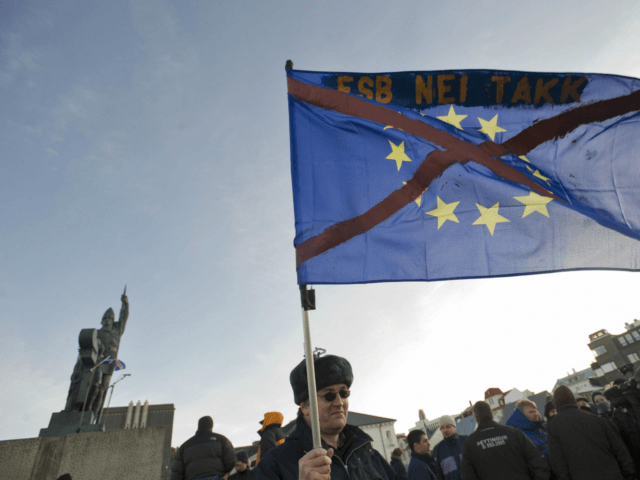Iceland’s independence is viewed as a “nuisance” by the European Union (EU) as it pushes to become an integrated superstate and pressures the Nordic nation to accept more and more of the bloc’s rules and regulations.
The comments were made by Bjarni Benediktsson, Iceland’s finance minister, who explained how they are battling to protect their national interests from “deeper integration” and the EU’s push to force them to bow to additional rules on energy and food standards.
Although not an EU member state, Iceland, along with Norway, is inside the Single Market and tied to many of the bloc’s rules thanks to membership of the European Economic Area (EEA) agreement.
It submits to the European Free Trade Area (Efta) court, which is informed by case law established by European Court of Justice (ECJ) rulings, and is subjected to open borders and mass migration.
Parliament’s Brexit committee has urged the prime minister to copy Iceland, and resort to “EEA / Efta membership” as a backup option it cannot secure a “deep and special partnership” with the EU.
“Those that are for integration are stepping up the pace and if that is realised there will be even less tolerance for special implementation in the European Economic Area,” Mr. Benediktsson told The Telegraph.
“A very new example is raw meat and the free flow of goods. The European line is one for all, all for one, no special rules for anybody.”
Referring to the legal framework that ensures Iceland is governed by Efta, rather than accepting direct rule from Brussels, he said: “Our participation in the [EU] internal market is founded on a two-pillar system.”
Adding: “The fact that the European Union has the idea that we would accept anything else is to us just outrageous. But these attempts are being made.”
Iceland, however, is technically outside the Customs Union, meaning it can sign its own trade deals.
The House of Lords voted last week to force the UK to stay in a similar union with the bloc, and many Labour MPs and even senior Tories are campaigning for this form of “soft Brexit”.
“We were first European country to make a trade deal with China, as small as we are,” said Mr. Benediktsson. “One might argue that was never likely to happen, that it would always be the European Union first, but no – Iceland was first.
“Obviously it’s simpler to deal with one nation, there are no compromises that need to be made in between partners before addressing the other side of table.”

COMMENTS
Please let us know if you're having issues with commenting.